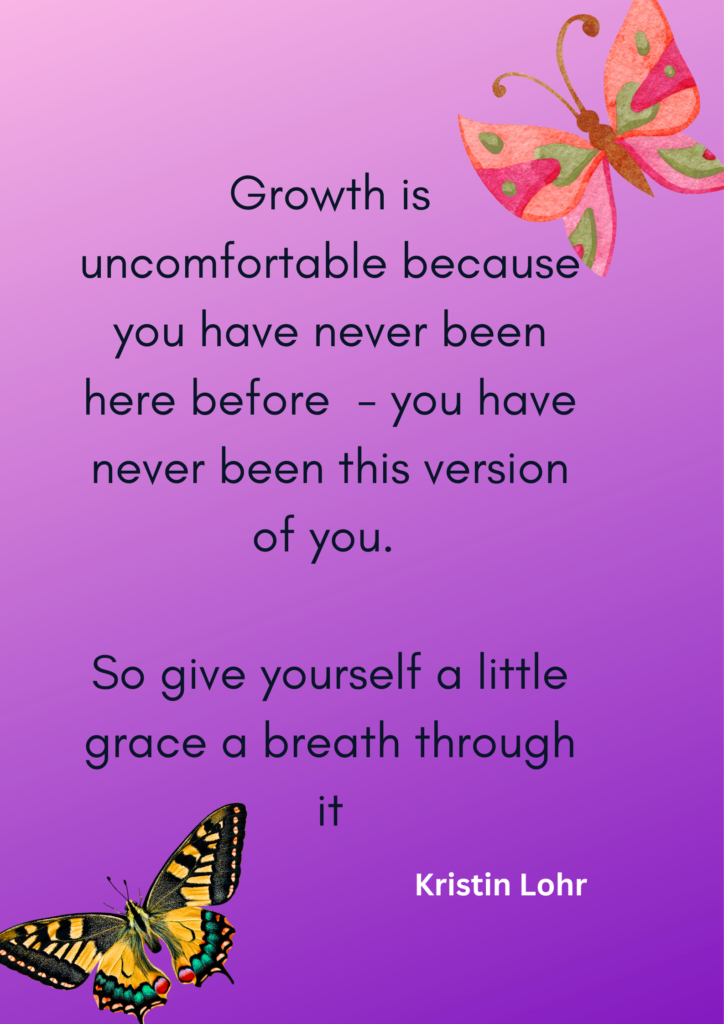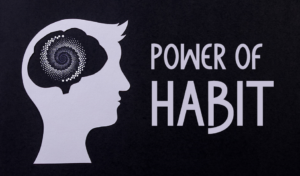Jump to Section
The Power of Forgiveness
Once, in a small village, there lived a woman named Maria. Maria had a neighbor, Anna, who had wronged her deeply by spreading malicious rumors that caused Maria much distress. For years, Maria harbored resentment towards Anna, and their relationship was strained.
One day, Anna fell seriously ill. She had no family to care for her and was too weak to look after herself. Despite the hurt she had caused, Maria felt a tug at her heart. She decided to visit Anna.
When Maria arrived at Anna’s home, she found her bedridden and frail. Without hesitation, Maria began to care for Anna—bringing her food, cleaning her home, and providing company. Anna, overwhelmed by Maria’s kindness, broke down in tears.
“I don’t deserve your help after everything I did to you,” Anna sobbed.
Maria gently held Anna’s hand and said, “Grace is not about what we deserve. It’s about what we give. I forgive you, Anna. Let’s leave the past behind and focus on healing.”
Through Maria’s acts of grace, Anna recovered. The two women not only healed their relationship but also became the closest of friends. Maria’s decision to extend grace and forgiveness transformed their lives, demonstrating that true grace is unconditional and has the power to heal even the deepest wounds.
Grace is the face that love wears when it meets imperfection
Joseph R Cooke
Embracing Abundant Grace
In our journey through life, the concept of “abundant grace” stands as a beacon of hope and transformation. But what does it truly mean? Abundant grace, at its core, is the unconditional, overflowing kindness, mercy, and love that one extends or receives, often without any merit or expectation. It is a boundless, selfless form of compassion that transcends our imperfections and mistakes.
Explore Forgiveness: Understanding the Spiritual Meaning of Forgiveness: 6 Awesome Ways To Healing the Soul
Rooted deeply in many religious traditions, particularly Christianity, grace is seen as a divine gift. In the Christian context, it is often associated with God’s unmerited favor towards humanity. The Bible speaks of grace as something freely given by God, not earned by works but bestowed out of pure love. This theological perspective underscores the limitless nature of divine grace—an ever-present, inexhaustible source of forgiveness and support.

However, the concept of abundant grace is not confined to religious doctrine. It permeates everyday life and can be seen in acts of kindness and forgiveness among individuals. When someone forgives another for a grievous wrong, offers help without expecting anything in return, or shows kindness in the face of adversity, they are demonstrating abundant grace. It is about recognizing our shared humanity and extending compassion, even when it is difficult.
Abundant grace also involves an inner journey. It requires us to embrace our vulnerabilities and accept grace for ourselves. This self-acceptance is crucial because it allows us to extend the same compassion and understanding to others. By practicing grace within, we foster a spirit of generosity and love that can profoundly impact our relationships and communities.
In essence, abundant grace is about living with an open heart. It’s about seeing beyond flaws and mistakes, whether our own or others, and choosing to respond with love and kindness. By embracing abundant grace, we not only uplift those around us but also find a deeper sense of peace and fulfillment in our own lives. It is a powerful, transformative force that encourages us to create a world filled with compassion and understanding.
Learn about Emotional Resilience: How to be Mentally And Emotionally Strong: 7 Key Strategies to Success
Abundant Grace: A Path to Transformation
In a world often filled with stress, conflict, and uncertainty, the concept of “abundant grace” offers a powerful antidote. I’m writing about this topic because I believe that embracing abundant grace can transform our lives and communities. Grace, in its most profound sense, is about extending kindness, forgiveness, and understanding beyond what is deserved. It is about seeing and nurturing the best in ourselves and others, even amidst our flaws and failures.
Let go Pain: From Pain to Peace: 7 Books on Healing Childhood Trauma and Building Resilience
The inspiration to explore this topic comes from witnessing the profound impact of grace in my own life and in the lives of others. Moments of unexpected kindness and forgiveness have shown me how powerful grace can be. Whether it’s a friend forgiving a past hurt, a stranger offering help in times of need, or the simple act of showing compassion to oneself, grace has the potential to heal, uplift, and connect us on a deeper level.

By writing about abundant grace, I aim to share these insights and inspire readers to cultivate grace in their own lives. This blog will delve into various aspects of grace—its definition, its presence in different cultural and religious traditions, and practical ways to embody grace daily. Through stories, reflections, and practical advice, readers can expect to gain a deeper understanding of what grace is and how it can positively impact their lives.
Moreover, this blog will offer a space for reflection and growth. Readers will be encouraged to share their experiences and insights, fostering a community centered around grace and compassion. By engaging with this content, readers can learn how to navigate life’s challenges with more kindness, forgive more readily, and build stronger, more empathetic relationships.
Ultimately, writing about abundant grace is about spreading a message of hope and love. It’s about reminding us all that, despite our imperfections, we have the power to create a more compassionate and connected world through the simple yet profound practice of grace.
Abundance: Beyond Material Wealth to Spiritual Richness
When we think of abundance, our minds often drift to images of wealth and material prosperity. However, abundance encompasses much more than financial success or possessions. True abundance is a holistic concept that includes a richness in spirit, relationships, and personal fulfillment.
Discover Spirituality: What is Spiritual Practice? 6 Awesome Tips to Start Your Spiritual Journey
At its core, abundance is about a sense of plenty and sufficiency in all areas of life. It’s an outlook that embraces gratitude and recognizes the blessings present in our everyday experiences. This perspective shifts the focus from what we lack to appreciating what we have, fostering a mindset of contentment and joy.

Spiritually, abundance is about inner richness and well-being. It involves cultivating a deep sense of peace, purpose, and connection with something greater than oneself. This might be a connection to a higher power, nature, or the human community. Spiritual abundance means living in alignment with one’s values and finding meaning in everyday actions. It’s about nurturing a generous spirit, being open to giving and receiving love, and finding fulfillment in personal growth and self-discovery.
Relational abundance, on the other hand, is about the quality of our relationships. It’s measured not by the number of friends we have but by the depth and authenticity of our connections. Building strong, supportive relationships involves practicing empathy, active listening, and unconditional support. It’s about creating and maintaining bonds that nourish our souls and provide a sense of belonging and security.
Moreover, abundance in relationships extends to the wider community. It’s about contributing to the well-being of others, fostering a sense of unity, and working towards common goals. Engaging in acts of kindness, volunteerism, and community-building activities enriches our lives and creates a ripple effect of positivity.
In essence, abundance is a multifaceted concept that transcends material wealth. It’s about embracing a life full of spiritual fulfillment, meaningful relationships, and a heart overflowing with gratitude and generosity. By adopting this broader understanding of abundance, we can lead richer, more satisfying lives and contribute to a more compassionate and connected world.
Linking Grace and Abundance: Boundless and Overflowing
When you think about grace and abundance, it’s easy to see how these concepts intertwine, creating a powerful and enriching life experience. Grace is often perceived as boundless and overflowing, much like the idea of abundance. Both represent limitless resources that can profoundly impact your life and the lives of those around you.
Check This Blog: Present-Moment Awareness: 14 Awesome Techniques For Nurturing Motivation From Heart to Mind
Grace, at its essence, is the unconditional love, kindness, and mercy you extend to yourself and others. It’s the ability to forgive and show compassion without expecting anything in return. When you live with grace, you embrace an open-hearted approach to life, accepting and giving freely, much like an endless well that never runs dry.

Similarly, abundance is about recognizing and appreciating the richness around you, not just in material terms but also in spirit and relationships. It’s the feeling of fullness and satisfaction that comes from knowing that you have enough and are enough. When you cultivate a mindset of abundance, you shift your focus from scarcity and lack to gratitude and plenty. This shift opens your heart and mind to the endless possibilities and blessings life offers.
Linking grace and abundance involves recognizing that both are about overflow—an overflow of kindness, love, and generosity. When you practice grace, you create an environment where abundance can flourish. You begin to see opportunities for growth, connection, and fulfillment that were previously hidden by a mindset of scarcity. Grace allows you to forgive yourself and others, clearing the way for more profound and meaningful relationships, which are a key component of true abundance.
By embracing both grace and abundance, you create a life filled with endless possibilities and deep, meaningful connections. You start to experience a richness in spirit and relationships that transcends material wealth, leading to a more fulfilling and joyful existence. In this way, grace and abundance together pave the path to a life where you can thrive and help others do the same, creating a ripple effect of positivity and generosity.
Examples of Grace in Action: Stories of Abundant Grace
Grace in action can be one of the most profound and moving experiences, demonstrating the boundless and transformative power of unconditional kindness and forgiveness. Here are a few compelling stories of individuals who have experienced or shown abundant grace.
Unlock your Power: Unlocking the Mind-Body Connection: 6 Undeniable Strategies for Nurturing Mental Health for Improved Physical Well-Being
Nelson Mandela’s Forgiveness
Nelson Mandela’s life is a remarkable example of abundant grace. After spending 27 years in prison under South Africa’s apartheid regime, Mandela emerged not with bitterness, but with a heart full of forgiveness. His grace was evident when he invited his former jailers to his presidential inauguration, symbolizing a new era of reconciliation and unity. Mandela’s ability to forgive those who had wronged him deeply helped heal a nation and foster a spirit of unity and peace.
Corrie ten Boom’s Act of Forgiveness
Corrie ten Boom, a Dutch Christian who helped many Jews escape the Nazis during the Holocaust, demonstrated abundant grace after the war. Having survived the horrors of a concentration camp, she faced one of her former guards at a speaking engagement years later. When the man asked for her forgiveness, Corrie felt an initial hesitation but ultimately extended her hand and forgave him, exemplifying profound grace and healing.
The Impact of Grace: Transformative Power in Giving and Receiving
Grace, in its truest form, holds the remarkable power to transform lives. Whether you are the one giving or receiving it, grace can initiate profound changes, fostering healing, growth, and deeper connections.
Learn about Habits: Happy People Habits: Exploring 10 Joyful Happiness Habits
The Power of Receiving Grace
Receiving grace can be a life-altering experience. When someone offers you unconditional forgiveness, compassion, or kindness, it can break down barriers of guilt, shame, and resentment. This acceptance and love, despite imperfections and mistakes, provide a sense of relief and hope. For instance, individuals struggling with self-worth or past mistakes often find renewal when they receive grace. It allows them to let go of self-condemnation and embrace a path of self-improvement and self-compassion. This can lead to increased self-esteem, motivation, and a more positive outlook on life.

The Power of Giving Grace
On the flip side, giving grace is equally transformative. When you choose to extend kindness and forgiveness, you not only impact the recipient but also undergo personal growth. Forgiving someone who has wronged you can release you from the burden of anger and bitterness. It opens your heart to empathy and understanding, leading to emotional freedom and peace. Moreover, practicing grace encourages a ripple effect, where your actions inspire others to act with similar compassion and generosity. This can lead to stronger, more harmonious relationships and communities.
Case Study: Grace in Relationships
Consider the example of a couple navigating a difficult phase in their relationship. By choosing to practice grace—acknowledging mistakes, forgiving each other, and committing to change—they can rebuild trust and strengthen their bond. This mutual grace allows them to move past conflicts and grow together, creating a more resilient and loving relationship.
Broader Societal Impact
On a larger scale, grace can transform societies. When communities embrace grace, they become more inclusive, supportive, and compassionate. Social movements driven by grace and forgiveness, such as those led by Nelson Mandela or Mahatma Gandhi, have historically shown how grace can heal deep societal wounds and bring about lasting peace and unity.
In essence, the impact of grace, whether given or received, is profound and far-reaching. It fosters personal healing, strengthens relationships, and can even transform entire communities, promoting a world where compassion and understanding prevail. By embracing grace, we tap into a boundless source of positive change, enriching our lives and the lives of those around us.
Daily Practice: Incorporating Grace into Your Life
Incorporating grace into your daily life can lead to profound personal growth and improved relationships. Here are some practical tips on how to cultivate grace through mindfulness, forgiveness, and acts of kindness.
Read More: Protect Your Energy: 7 Amazing Strategies to Mastering the Art of Emotional Boundaries

Mindfulness
Mindfulness is the practice of being present and fully engaged with whatever you’re doing in the moment. By incorporating mindfulness into your daily routine, you can become more aware of your thoughts, feelings, and actions. This awareness is the first step in practicing grace. Take a few minutes each day to meditate or simply sit quietly, focusing on your breath. This helps to center your mind and open your heart to the present moment, allowing you to respond with grace rather than react impulsively.
Forgiveness
Forgiveness is a cornerstone of grace. Holding onto grudges and past hurts only weighs you down. Make a conscious effort to forgive those who have wronged you, including yourself. Start by acknowledging your feelings of hurt and anger, then decide to let them go. You can practice forgiveness by writing a letter to the person you’re forgiving (even if you never send it) or simply by repeating a mantra such as, “I forgive you, and I release this burden.” Remember, forgiveness is a process and might take time, but it’s essential for your emotional well-being.
Acts of Kindness
Small acts of kindness can make a big difference in your life and the lives of others. Look for opportunities to help those around you, whether it’s holding the door for someone, complimenting a colleague, or volunteering in your community. These acts don’t have to be grand gestures; even a smile or a kind word can go a long way. By making kindness a daily habit, you’ll foster a spirit of grace that can ripple out and inspire others.
Self-Compassion
Practicing grace towards yourself is equally important. Be kind and forgiving to yourself, especially when you make mistakes. Treat yourself with the same compassion you would offer a friend. Engage in self-care activities that nurture your body, mind, and spirit. This could be anything from taking a relaxing bath to reading a good book or going for a walk in nature.
Reflect and Express Gratitude
Take time each day to reflect on the grace you’ve experienced and the grace you’ve extended. Keeping a gratitude journal can help you focus on the positive aspects of your life and cultivate an attitude of thankfulness. Write down at least three things you’re grateful for each day, and reflect on the acts of grace you’ve encountered.
Incorporating grace into your daily life is a practice that requires intention and effort, but the rewards are immense. By being mindful, practicing forgiveness, performing acts of kindness, being compassionate towards yourself, and expressing gratitude, you can live a more graceful and fulfilling life.
Overcoming Challenges: Practicing Grace in the Face of Injustice or Personal Hurt

In a world rife with injustice and personal hurt, the practice of grace can seem like an elusive virtue. Yet, it is precisely in these moments of difficulty that grace becomes most crucial. Whether confronted with systemic inequalities or personal slights, finding the strength to respond with grace can be profoundly empowering. Here are some tips to help you implement grace in the face of adversity.
Heal Yourself: The Healing Power of Self-Forgiveness: 13 Forgiving Yourself Books to Transform Your Life
- Understand that grace is not a sign of weakness: It takes courage to respond with kindness when faced with hostility or injustice. Recognize that grace is not about condoning wrongdoing but about maintaining your integrity and dignity in challenging circumstances.
- Cultivate empathy: Try to understand the perspectives and motivations of those who may have wronged you. Recognize that everyone carries their own burdens and struggles, which may manifest in hurtful behavior. By empathizing with others, you can break the cycle of resentment and foster understanding and forgiveness.
- Practice self-care: In moments of adversity, it’s essential to prioritize your mental and emotional well-being. Engage in activities that bring you joy and peace, whether it’s spending time in nature, practicing mindfulness, or pursuing creative outlets. Taking care of yourself enables you to respond to challenges with clarity and compassion.
- Set healthy boundaries: While practicing grace involves extending kindness and forgiveness, it doesn’t mean tolerating continued mistreatment. Establish boundaries that protect your emotional health and communicate them assertively but compassionately.
- Seek support from your community: Surround yourself with people who uplift and encourage you. Lean on friends, family, or support groups for guidance and solidarity during difficult times. Remember that you don’t have to navigate challenges alone.
In conclusion, practicing grace in the face of injustice or personal hurt is a transformative journey that requires courage, empathy, self-care, boundary-setting, and community support. By embracing grace, you can transcend adversity and cultivate a sense of peace and resilience that empowers you to navigate life’s challenges with strength and dignity.
Conclusion

In embracing abundant grace, we embark on a profound journey towards unconditional love and acceptance, both for ourselves and others. Through the practice of grace, we transcend the limitations of resentment and bitterness, choosing instead to respond with kindness and forgiveness in the face of adversity. This journey is not always easy, as we navigate the complexities of human relationships and confront the injustices of the world. Yet, it is precisely in these moments of challenge that grace shines brightest, illuminating the path towards healing and reconciliation.
Explore Further: Power of Gratitude Awareness: 7 Outstanding Reasons To Thriving Your Gratitude Journal Practice
As we strive to embody grace in our daily lives, we discover the transformative power of empathy, compassion, and forgiveness. We learn to see beyond differences and embrace the inherent dignity and worth of every individual. In doing so, we create space for healing and growth, both within ourselves and within our communities.
In this journey towards abundant grace, we are reminded of the profound interconnectedness of all beings. We recognize that our actions have ripple effects far beyond our immediate sphere, shaping the world in ways both seen and unseen. With each act of kindness and each gesture of forgiveness, we contribute to the collective evolution towards a more compassionate and just society.
So let us embrace grace wholeheartedly, as both a gift to ourselves and a beacon of hope for the world. Let us cultivate a spirit of generosity and understanding, recognizing that true strength lies not in power or dominance, but in the ability to love and accept unconditionally. And let us never underestimate the power of grace to create positive change, one heart, and one soul at a time.
As you reflect on the journey of embracing abundant grace, consider this: How might your life be transformed if you approached every situation with a spirit of grace and compassion? And how can you contribute to the creation of a world where grace reigns supreme, fostering healing, understanding, and unity?
In a world often fraught with tension and conflict, the practice of grace stands as a beacon of hope, offering a path towards healing and reconciliation. It’s a reminder that even in the face of adversity, we have the power to respond with kindness and forgiveness, nurturing empathy and understanding in ourselves and others. As we navigate the complexities of human relationships and confront the injustices of the world, inviting readers to practice grace becomes not just a call to action but a transformative journey towards greater compassion and connection.
Each of us has the capacity to embody grace in our daily lives, whether it’s through a small act of kindness towards a stranger or a profound gesture of forgiveness towards someone who has wronged us. By extending grace to others, we create ripple effects of positivity and goodwill that can reverberate far beyond our immediate circles. Moreover, by practicing grace in our own lives, we inspire others to do the same, fostering a culture of empathy and understanding that transcends boundaries of race, religion, and nationality.
But practicing grace isn’t always easy. It requires humility, patience, and a willingness to let go of anger and resentment. It means acknowledging our own flaws and vulnerabilities while striving to see the humanity in those around us, even when they may seem undeserving. Yet, it is precisely in these moments of challenge that grace becomes most powerful, transforming conflicts into opportunities for growth and understanding.
So I invite you, dear readers, to join me on this journey of practicing grace in our own lives. Share your stories of kindness and forgiveness, whether it’s a moment of compassion that touched your heart or a difficult situation where you chose to respond with grace. By sharing our experiences, we not only inspire others to embrace grace but also find strength and support in knowing that we are not alone in our struggles.
Together, let us create a community of grace, where each act of kindness and each gesture of forgiveness serves as a testament to the power of love and compassion. Let us celebrate the beauty of human connection and the transformative potential of grace, knowing that even in the darkest of times, there is always light to be found in the kindness of others.




